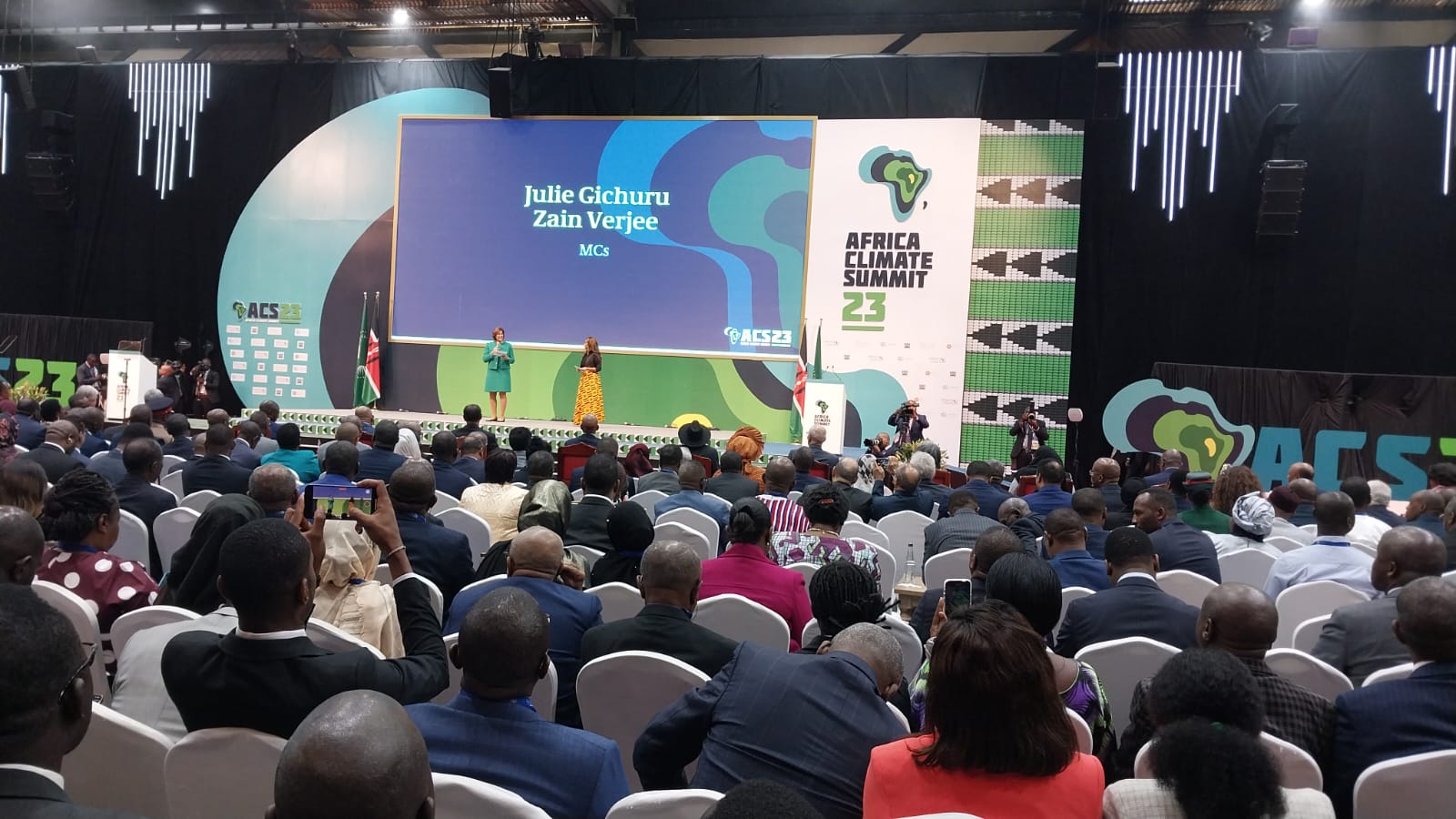
In a powerful display of unity and resolve, African leaders from across the continent converged in Nairobi, Kenya, for the inaugural Africa Climate Summit (ACS). This landmark event unfolded at the Kenyatta International Convention Centre from September 4th to September 6th 2023. Organized by the Kenyan government in collaboration with the African Union, this gathering of leaders underscored their unwavering commitment to spearheading sustainable solutions to the ever-escalating climate crisis.
Africa’s Crucial Commitment
The ACS convened a notable gathering of African leaders. In attendance were the heads of state from different countries, including Tanzania, Rwanda, Burundi, Mozambique, South Sudan, Congo, Egypt, Ghana, Libya, Sierra Leone, Ethiopia, Sahrawi, Comoros, Djibouti, Eritrea and Senegal. President William Ruto of Kenya hosted this event.
African Resilience in the Face of Crisis
Africa is no stranger to the devastating impacts of climate change. The continent has witnessed erratic weather patterns and prolonged droughts resulting in crop failure, famine, malnutrition, and the heartbreaking death of livestock and wildlife. Despite Africa’s minimal contribution to global pollution, the continent bears the brunt of the severe consequences of global warming.
President Ruto, in his opening remarks, elucidated that the African Climate Summit is a convention to consult, deliberate, and collaborate in imagining and designing the future of climate action globally and its implications for Africans’ aspirations to achieve shared prosperity within one generation.
He further stated that climate change is the greatest challenge not only to the well-being of humanity but to every existence of life on earth. “Only urgent and coordinated action on a global scale can stop the impending catastrophe.” Hon. William Ruto stated.
Demanding Urgent Action
During the ACS, Afrobarometer, a renowned research organization, presented findings from surveys conducted in 36 African countries. These surveys unveiled a poignant truth: most African citizens demand immediate government action on climate change. However, they also exposed a significant gap in awareness, with only 52 percent of respondents being aware of climate change.
Madagascar, Lesotho, Mauritius, Malawi, and Benin stood out as countries where most respondents believed climate change adversely affected their livelihoods. The report shows the urgency to combat the ravages of climate change. The 2023 ACS stands as a testament to the unwavering commitment of African nations to tackle this crisis head-on.
A Kenyan Voice at the Summit
Among the voices at the summit was Michael Mithiru- Program Manager at Africa Instore Solutions(AIS), who attended as an advocate for youth involvement in agriculture. “This summit marks a turning point for climate action in Africa,” he noted. “Many African youth, including myself, are eager to engage in agriculture and contribute to sustainable solutions. However, access to capital for investment in sustainable eco-based agribusiness ventures remains a significant hurdle.
His submission was for access to affordable finance and credit to facilitate entrepreneurship. “We need support through accessible loans and grants to unleash our potential.” He added.
Key Takeaways from the Summit.
African leaders voiced their unwavering commitment to finding sustainable climate solutions at the ACS. They pledged their support to position the continent at the center of the fight against climate change.
These African leaders were vehement in their demand for the developed economies to deliver on their promise to provide $100 billion annually in climate finance for the service of global financial architecture to meet Africa’s needs better.
Climate change is a global issue that affects everyone, and it cannot be effectively tackled through isolated efforts in specific regions or countries. President Ruto talked about this in a powerful message, emphasizing that the pursuit of climate action cannot rely on isolated policies. “Global warming cannot be mitigated by air-conditioning our little pockets and corners of the world,” he declared.
Leaders such as President Kiir of South Sudan called for using Africa’s vast renewable energy resources, including solar, wind, geothermal, and hydropower, to combat climate change. President Afwerki of Eritrea echoed this sentiment, asserting that Africa should mobilize its resources rather than depend on external aid. The leaders underlined the interconnectedness of climate change and Africa’s development, stressing the need for collaboration with developed nations.
In an impassioned call for change, the leaders called for radical action, which involves mobilization of Africa’s resources, streamlining access to international climate finance, and exploring a more equitable international financial system to address Africa’s debt burden. They also discussed reallocating global climate change funds.
During the summit, President of the European Commission Ursula von der Leyen and the president of Kenya Ruto launched Kenya’s Green Hydrogen Strategy and Roadmap. The road map, developed by EU experts, sets out Kenya’s ambitions to build its green hydrogen industry from 2023 to 2032 and beyond.
Concerns over contradicting regulations
Concerns arose over Kenya’s recent lifting of the ban on commercial logging, raising environmental conservation issues. Challenges in climate-friendly adaptations continue despite Kenya’s efforts in renewable energy and banning single-use plastic bags.
Our take on ACS
The Africa Climate Summit signifies a pivotal moment in the collective resolve of African nations to confront the formidable challenge of climate change. African leaders have united with a shared commitment to find sustainable solutions. While the path ahead may be fraught with obstacles, the key takeaways from this summit offer hope that Africa can and must play a pivotal role in addressing the global climate crisis.
The ACS serves as a beacon of hope, illuminating a path toward a more sustainable and resilient future for the continent and the world.
. 

